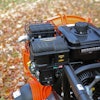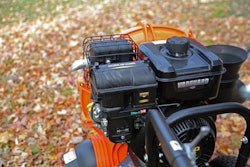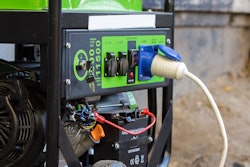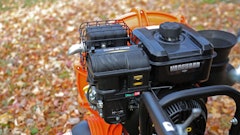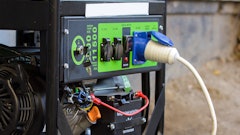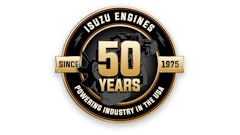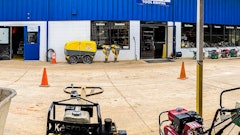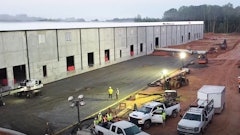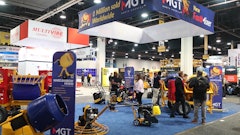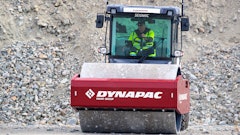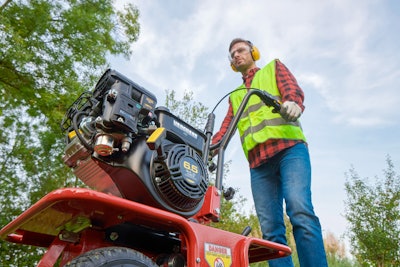
For rental businesses and construction contractors, the small engine is often an overlooked component, yet it remains the primary driver of jobsite productivity. While an engine's upfront cost may raise some eyebrows, a truly profitable engine isn't the one with the lowest price tag.
The real measure of its worth is its long-term return on investment (ROI), which comes from looking at the total cost of ownership (TCO) over the engine's life. This requires a strategic shift in thinking: seeing the engine not as a purchase cost, but as a direct contributor to jobsite efficiency and profitability.
In the rental yard or on the jobsite, downtime is the enemy of profitability. A machine in the shop isn't just sitting idle; it's actively costing you money in lost revenue. That's why an engine's durability has the most impact on its ROI.
Advanced air filtration is a critical first line of defense. In dusty environments, a basic filter can clog quickly, choking the engine and letting in damaging dirt. Look for modern engine designs that work like a cyclonic vacuum, spinning out heavy debris before it reaches the filter. This feature helps to keep the engine healthier and extends service intervals.
Routine maintenance is extremely important. Simple serviceability minimizes the time and cost of routine maintenance. Thoughtful features like dipsticks offered on all engines and an angled, easy-access oil fill port or a clean, tool-free drain system can turn a messy job into a quick task, keeping your equipment on the job and out of the shop.
More about ROI on ForConstructionPros.comThe Ugly Truth about ROI - Calculating costs can be simple; calculating benefits is not. Take a Cue from Rental to Extend Construction Equipment Return on Investment - Construction companies can learn from rental operations when it comes to extending the life and return on investment from equipment in their fleet. Optimizing Rental Facility Flow, Equipment Placement, Image and Emphasizing Efficiency - Columnist Dick Detmer explains how items such as facility flow, equipment placement and overall image can influence a rental company's efficiency. |
 Vanguard Commerical Engines | Briggs & Stratton
Vanguard Commerical Engines | Briggs & Stratton
Productivity Through the User Experience
An engine that is difficult to start is an immediate drain on productivity. Modern technology like Electronic Fuel Injection (EFI) tackles this problem directly by using sensors to deliver the precise fuel mixture required for an easy, consistent start, regardless of the temperature or altitude.
This provides several key benefits:
- Reliable Starting: EFI eliminates the frustrating choke-and-pull practices of older engines, providing consistent starting every time.
- Automatic Adjustment: The system automatically adjusts for changes in altitude and temperature, ensuring the engine runs smoothly without any manual tweaks to a carbureted system.
- Stable Power: It delivers consistent power under varying loads, preventing the engine from bogging down allowing the engine more usable HP.
This improved experience translates directly to your bottom line.
Calculating the True Total Cost of Ownership
An engine's sticker price is just the beginning. The TCO includes all long-term expenses, giving you an accurate picture of its true financial impact.
For the renter, fuel is often one of the largest operating expenses on a jobsite. This is where electronic fuel injection (EFI) provides an advantage by improving fuel efficiency. Over a busy season, those daily savings can add up. A machine with EFI is more attractive to cost-conscious renters, which increases its utilization rate and maximizes the equipment's lifetime earnings for the owner.
TCO calculation also includes the maintenance benefits mentioned earlier. Features that extend service intervals for oil and air filters directly lower ownership costs through reduced spending on labor and replacement parts. Having a firm grasp of TCO is essential for managing a fleet smartly, allowing for more competitive bids and protecting your profit margins.
Even the toughest engine will need service at some point. When it does, the quality of the manufacturer's support network is what makes the difference between a quick fix and a long, expensive delay. A strong customer support system is your best insurance against extended downtime. This includes having quick access to parts, reliable technical support and a comprehensive warranty, all of which help keep your equipment productive and your business profitable.
Ultimately, choosing the right engine is a strategic business decision, not just another purchase. When you evaluate an engine based on its total contribution to your operation: factoring in uptime, jobsite productivity, and daily costs, you move beyond the sticker price. You're making a direct investment in the reliability and efficiency of your fleet.


